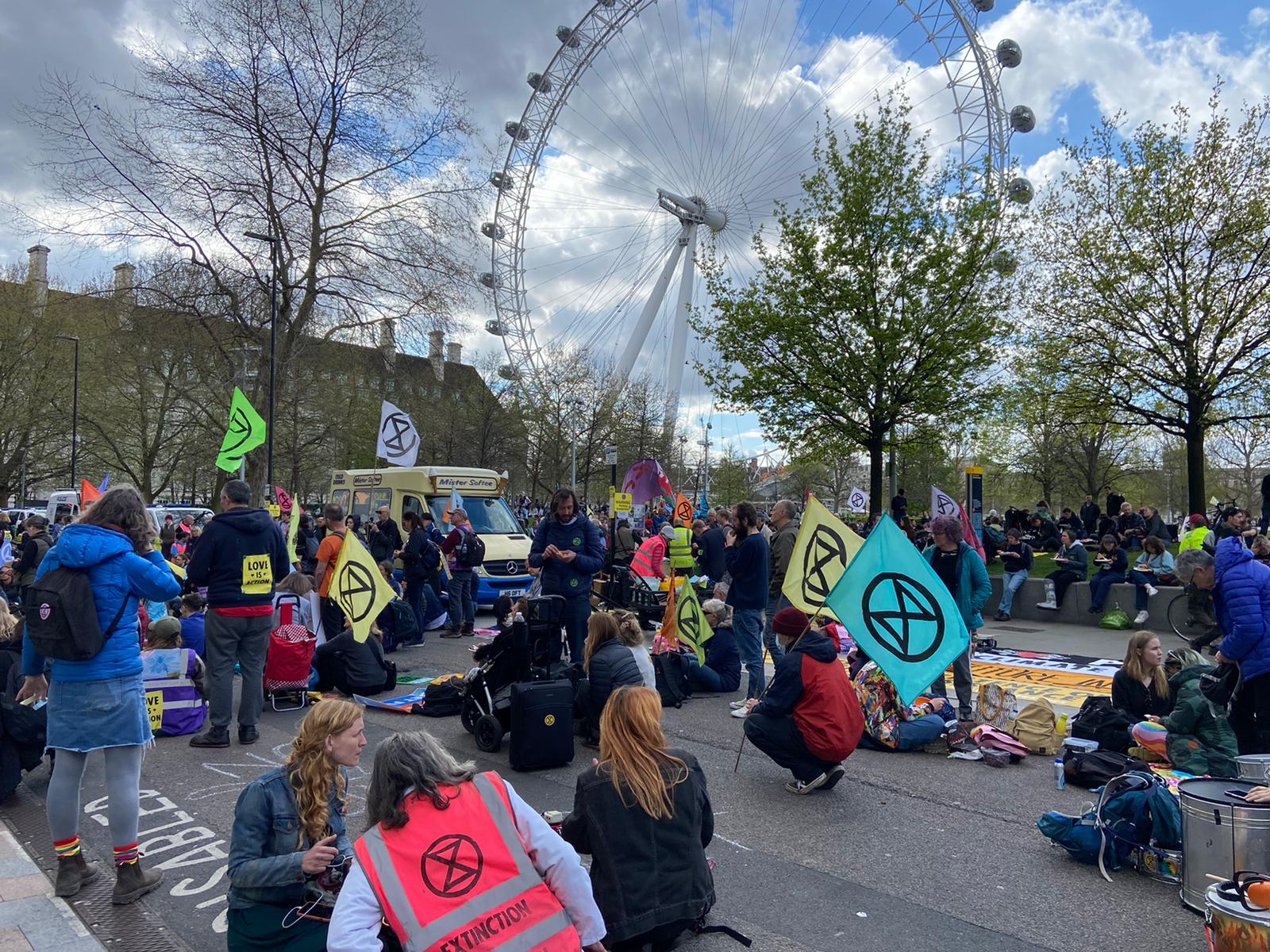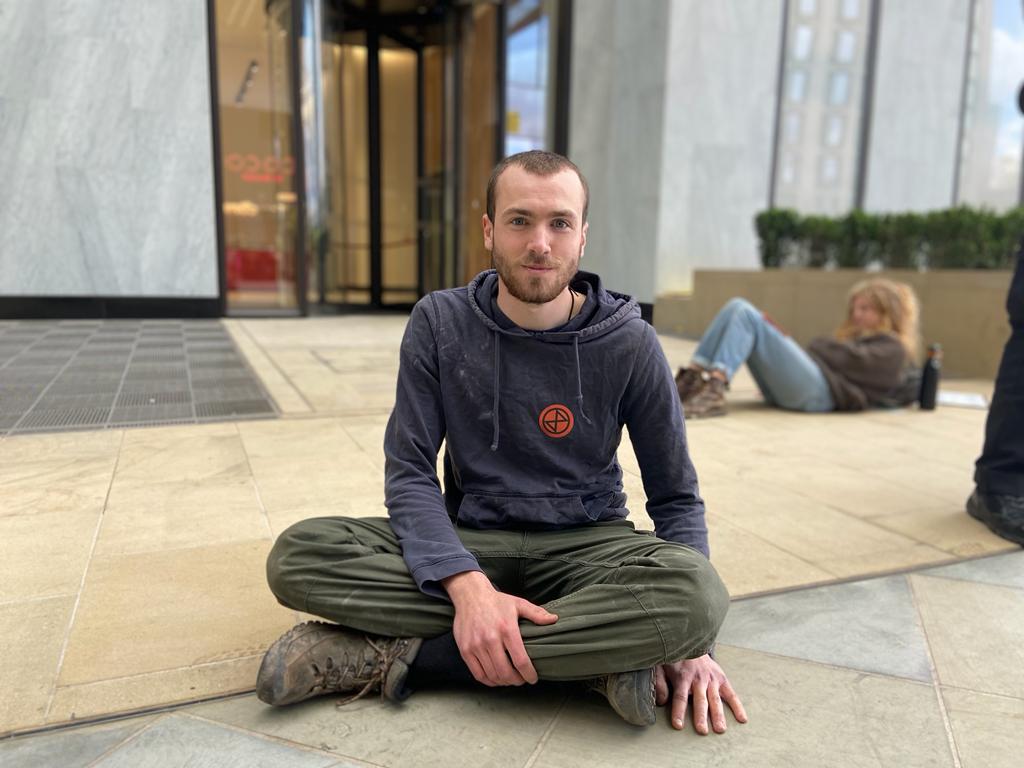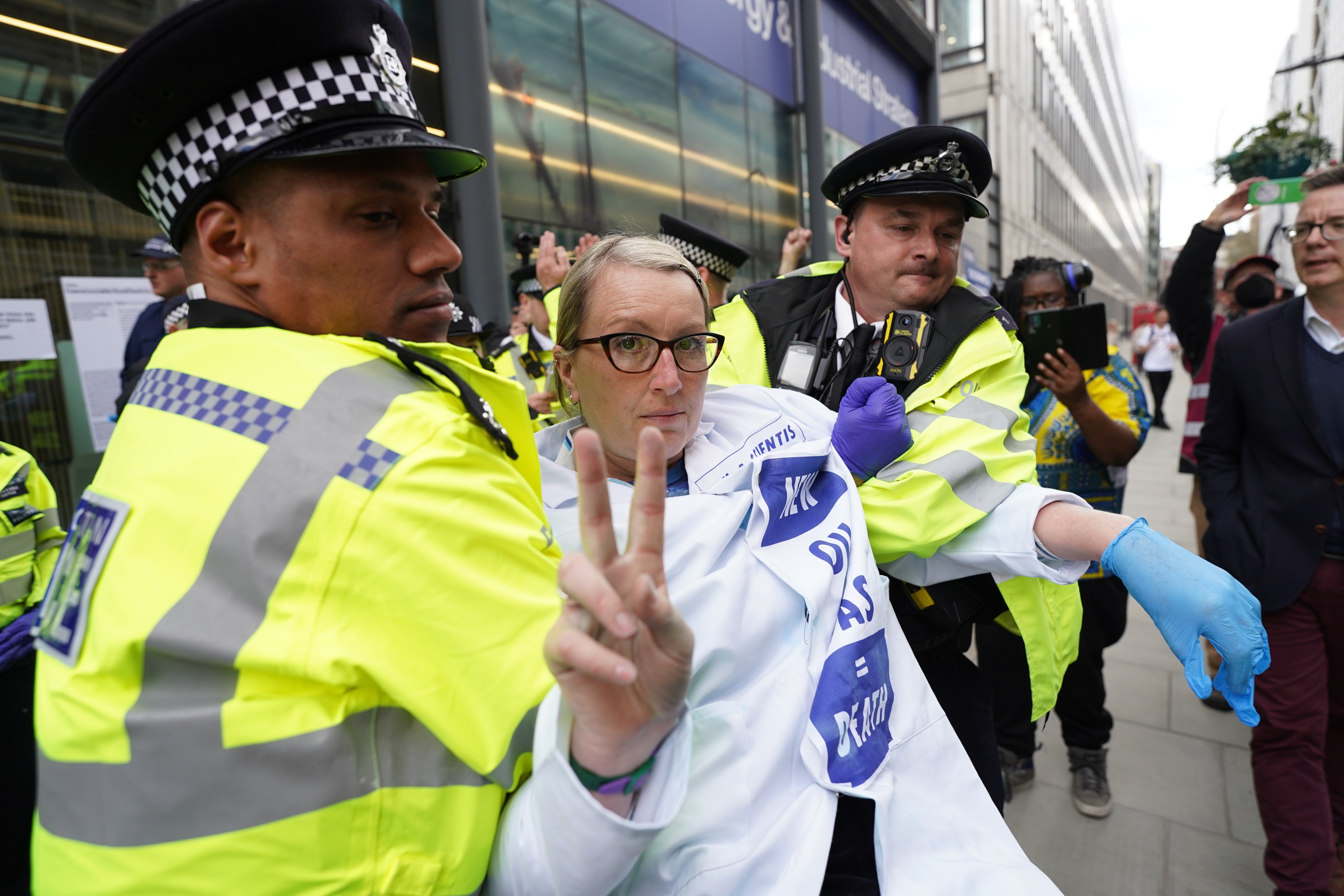Extinction Rebellion infiltrates headquarters of ‘biggest offenders’ Shell on day of climate action
‘There’s a better way of life out there where we don’t have to burn fossil fuels’ one activist tells Saphora Smith
Your support helps us to tell the story
From reproductive rights to climate change to Big Tech, The Independent is on the ground when the story is developing. Whether it's investigating the financials of Elon Musk's pro-Trump PAC or producing our latest documentary, 'The A Word', which shines a light on the American women fighting for reproductive rights, we know how important it is to parse out the facts from the messaging.
At such a critical moment in US history, we need reporters on the ground. Your donation allows us to keep sending journalists to speak to both sides of the story.
The Independent is trusted by Americans across the entire political spectrum. And unlike many other quality news outlets, we choose not to lock Americans out of our reporting and analysis with paywalls. We believe quality journalism should be available to everyone, paid for by those who can afford it.
Your support makes all the difference.A handful of mainly middle-aged climate activists, some wearing suits, gathered on London’s South Bank on Wednesday to infiltrate the headquarters of oil giant Shell.
They came united in fear for the future as global warming puts humanity on what the head of the United Nations has described as “a fast track to climate disaster”.
“It’s absolutely heart-breaking to think that they’re inheriting a world that has potentially just been ruined by greed and a willingness not to change,” Andy Smith, an art teacher, said of his four nieces. “That’s the key motivation.”
Hours later, Mr Smith and his fellow activists had entered Shell’s London headquarters, and some had managed to glue themselves to the reception desk, having asked to speak to human resources. The action on Wednesday, organised by environmental group Extinction Rebellion, was focused on getting the attention of Shell employees, whom they hoped to convince to “jump ship”.

But it was not the only action taking place in the capital. A short way across the city, scientists had glued themselves to a government department to call for an end to all new oil and gas. And earlier, on the outskirts of London, climate activists with the Just Stop Oil campaign had occupied an oil tanker.
The demonstrations come during a week of mass action by Extinction Rebellion (XR) while the Just Stop Oil coalition has been disrupting oil infrastructure since 1 April. On Monday, XR activists blocked the entrance to Lloyd’s of London in protest over the insurance sector’s backing of the fossil fuel industry.
“We’ve got so little time,” said Bernard Kelly, a frontline NHS worker, explaining why he was taking part in the action against Shell on Wednesday. “We should have stopped fossil fuels already.”
The activists’ concerns are rooted in science. The demonstrations follow the publication of the latest chapter of a landmark climate report by the UN’s International Panel on Climate Change last week, which warned that global greenhouse gas emissions need to peak by 2025 at the latest to avert a “catastrophic” temperature rise. The International Energy Agency has also warned that there should be no new fossil fuel exploration for the world to stay on the path to net-zero greenhouse gas emissions by 2050.

Asked why they were targeting Shell specifically, the activists described the company as among the “biggest offenders”.
“The awful, awful greenwashing they’re doing, they’re portraying themselves as the good guys in this,” said Tim Jones, a former teacher from Sheffield, who was also involved in the action Wednesday. “That they are the ones who are going to get us out of this crisis.”
Mr Jones, 39, said while XR had done a lot to disrupt the public in recent years, the group knew that activists needed to do more to target the institutions responsible for the climate crisis.
Asked whether XR was changing tactics after criticism for disrupting members of the public, Mr Jones, 39, said wider disruption was still necessary.

“There has to be an element of disruption, we can’t only target big corporations because they’re really good at ignoring disruption,” he said. “People won’t listen until they can feel and that’s critical to our theory of change.”
Today, however, the activists that met with The Independent said their focus was largely on Shell employees.
Alex Alderton, 26, who was part of the team targeting Shell, said they didn’t blame Shell employees as individuals and knew that everyone had to pay their bills and put food on the table, but said they hoped the employees would reflect on the impact of their jobs.
“The things they’re doing are so destructive and counterproductive to the survival of humanity, that it would be really great if they could understand what they’re being a part of and hopefully we can talk to them about alternatives,” they said. “About why maybe if they care about the planet and about humanity then they might not want to be a part of this industry.”

Minutes after the XR activists made it into the Shell building on Wednesday afternoon, others emerged outside the building and began glueing themselves to the ground. Police officers tried to intercept them before they were able to do so. Next, a large protest gathered outside the high-rise office block, with demonstrators holding banners reading “End Fossil Fuels Now”, and others naming Shell employees asking them to “jump ship”.
Ruskin Wilson, an environmental management student who had glued himself outside the building, said he hoped the demonstration would prompt Shell employees to question who they work for and what they do for a living.
“Hopefully they’ll see a better way,” the 23-year-old said. “There’s a better way of life out there where we don’t have to burn fossil fuels and destroy the climate.”
Last month, an environmental organisation said it was suing Shell’s directors for their “failure to properly prepare” the company for net zero. And last year, a court in the Netherlands ruled that the company must reduce its worldwide net-carbon emissions by 45 per cent by 2030, compared with 2019 levels. Shell has said it is appealing the ruling.
In response to news of the new legal action last month, a spokesperson for Shell said the company was delivering on its global strategy that supports the Paris Agreement. “This includes the industry-leading target we have set to halve emissions from our global operations by 2030, and transforming our business to provide more low-carbon energy for customers,” the spokesperson said.

When asked about the allegations levelled at them by climate activists on Wednesday, Shell shared a statement from a spokesperson who said the company agreed that society needs to take urgent action on climate change and said Shell has a clear target to become a net zero emissions business by 2050, in step with society.
The company was planning to invest between £20-25bn in the UK energy system over the next decade – with more than 75 per cent of this being in low and zero carbon, including offshore wind, hydrogen and electric mobility.
“We respect the right of everyone to express their point of view and welcome constructive engagement on our strategy and the energy transition,” the spokesperson said. “We do ask, however, that in doing so people do not intimidate our people or put anyone’s safety at risk.”
It was not just business that was in the crosshairs of climate activists Wednesday, but government too.
In Westminster, scientists targeting the Department of Business, Energy and Industrial Strategy said the UK could no longer claim to be a global leader on climate change, because after the latest chapter of a UN climate report was published last week the government announced it would licence new oil and gas fields in the North Sea.

Unveiling the third chapter of the seminal report, UN secretary-general Antonio Guterres called investing in new infrastructure relating to fossil fuels, which are behind the continuing rise in planet-heating greenhouse gases, “moral and economic madness”.
“Climate activists are sometimes depicted as dangerous radicals,” he said. “But the truly dangerous radicals are the countries that are increasing production of fossil fuels.”
Business secretary Kwasi Kwarteng responded to the scientists who glued themselves to his department on Wednesday, saying that they “cannot – and we won’t – switch off domestic oil and gas production”.
“Doing so would put energy security, jobs and industries at risk – and would simply increase foreign imports, not reduce demand,” he said.
Back on the South Bank, one activist told The Independent that this was not the first time she had tried to send a message to Shell.
Jane Augsburger, 56, said she was part of an Extinction Rebellion action against the corporation three years ago. The group broke a window and emblazoned the front of the building with the slogan: “Shell Lies.”
Ms Augsburger, a carer, said she was back because nothing had changed.
“Time has already run out,” she said. “Shell should take off their mask and expose who they really are – they’re addicted to fossil fuels.”
Join our commenting forum
Join thought-provoking conversations, follow other Independent readers and see their replies
0Comments